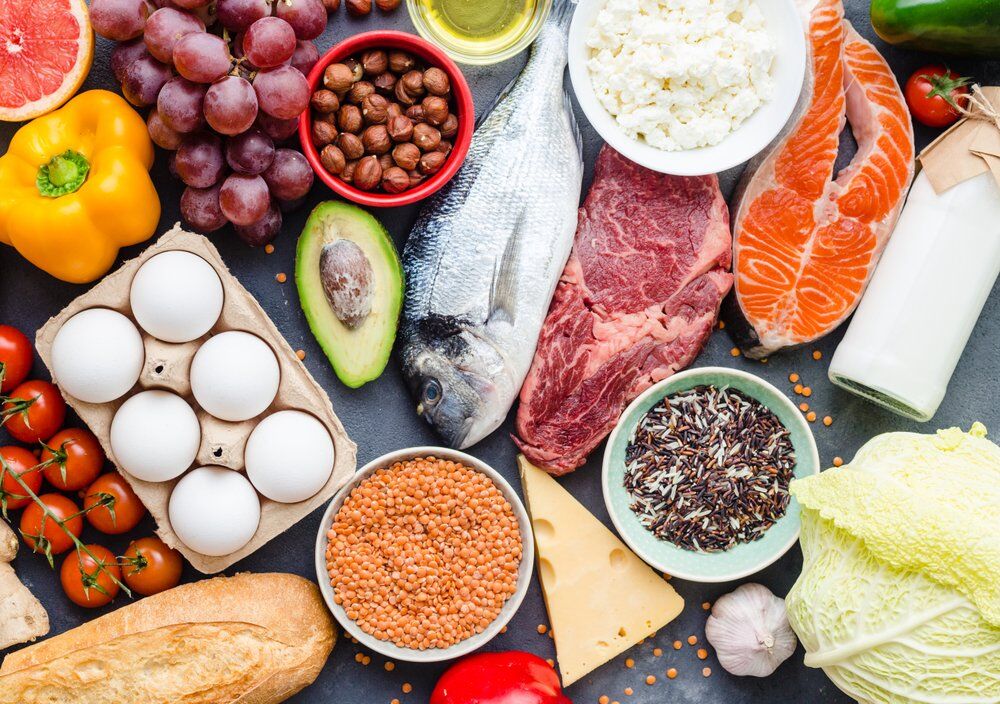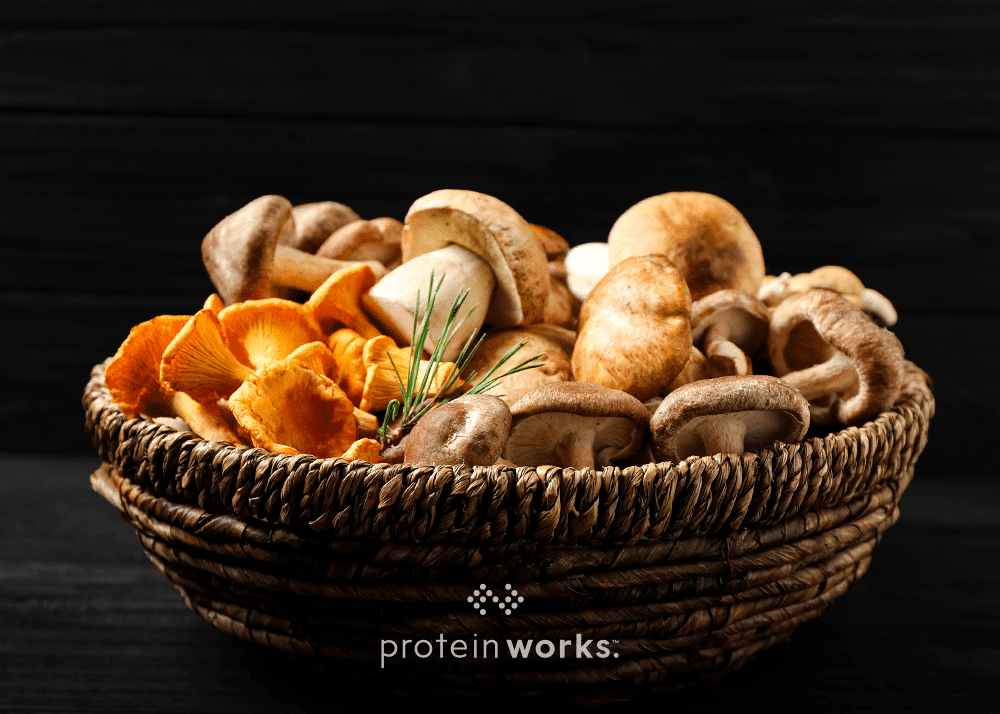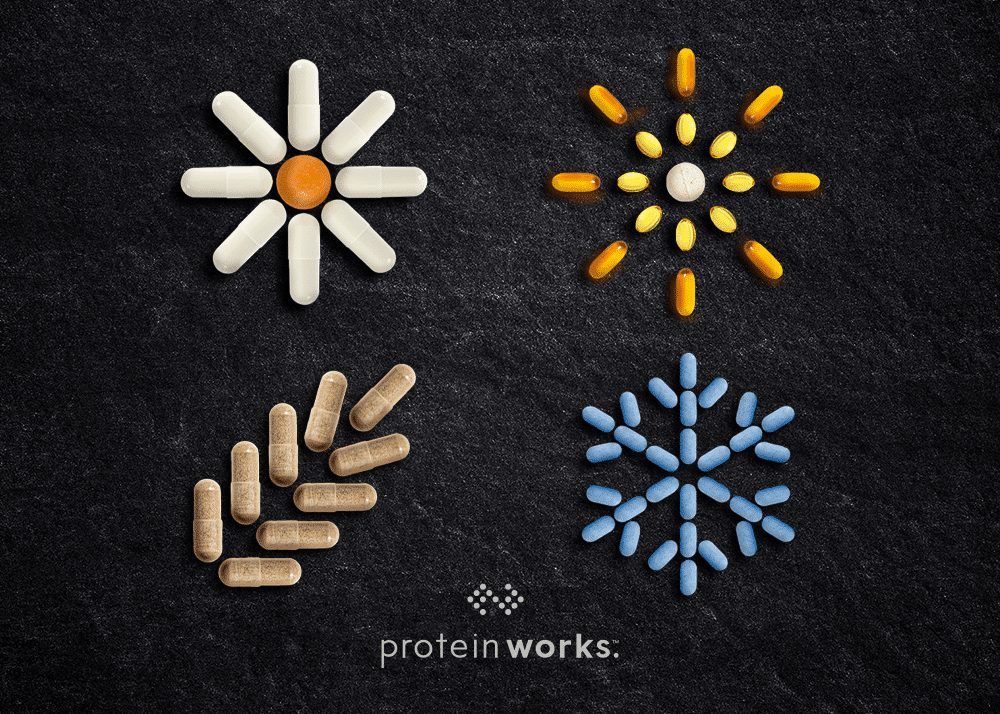
What Are Macros? Everything You Need to Know
Macronutrients, more commonly known as ‘Macros’, are a group of nutrients that are stored in large quantities within your body. These are essential for providing your body with the energy it requires to do absolutely everything, from exercising to simply using your brain (which uses around 300 calories a day!).
There are three macronutrients: Protein, Carbohydrate & Fat and while some of these have negative stigma surrounding them, they all have a place in your diet!
Protein
Providing 4 kcals per gram, protein is arguably the most important macronutrient. Proteins, typically found in meats, dairy, beans and soy products, are the building blocks of everything we do and are used to make your muscles, organs, hair and tiny molecules within your body. In essence, without protein, you wouldn’t exist!
Muscle Gain
When following an active lifestyle, your muscle tissues are constantly broken down and rebuilt through muscle protein synthesis, which is the essential process for recovery and adaptation. In order to achieve muscle growth, muscle protein synthesis must exceed breakdown and protein intake can facilitate this!
It is no secret that, alongside weight training, a higher protein intake helps to increase both muscle size and strength (Tipton et al., 2001), however the amount of protein required is up for debate. It is generally recommended that you should have 1 g per pound of body weight / 2.2 g per kg, but research recommends closer to 1.7 g per kg will be sufficient (Rodriguez et al., 2009). Generally, anywhere between this 1.7 and 2.2 g per kg body weight will be an acceptable goal for those wanting to increase their muscle mass.
These recommendations should also be followed for those that want to lose body fat while preserving their current muscle mass. Research has shown that a high protein diet is vital for offsetting the reductions in muscle mass that are often associated with dieting (Mettler et al., 2010).
Weight Loss & Health
Despite a common misconception, a high protein diet is not just for those who want to build muscle, and it will certainly not make you fat!
In fact, protein has a big role to play in weight loss and improving overall health!
In contrast to muscle gain, where a high intake relative to body mass is important, here we will be talking about the percentage of your diet coming from protein sources.
Protein should consist of 20 – 30 % of your overall calorie intake for a number of reasons.
Firstly, as mentioned above, a high protein diet helps promote the development of lean muscle tissue, which increases your metabolism therefore overall energy expenditure.
Protein-rich foods can also increase your metabolism for a couple of hours after consumption, as protein requires more energy to digest than fats and carbohydrates. This is known as the thermic effect of food (Pesta et al., 2014).
Research has also shown that a high protein diet (30%) can keep you feeling fuller for longer, reducing spontaneous energy intake in women by over 400 calories! (Weigle et al., 2005).
Carbohydrate
Carbohydrates, despite what is often reported, are not evil!
A common weight loss technique is to cut carbohydrates from the diet entirely, however this is often not sustainable or healthy. While there are potential benefits to Ketogenic diets when performed correctly, carbohydrates should be included in your diet even if you are aiming to lose weight!
Providing 4 kcal per gram and commonly found as sugar, starch and fibre, carbohydrates play an important role in maintaining a healthy, balanced diet.
When consumed, carbohydrates are broken down to glucose before entering the bloodstream, and this blood glucose is the primary source of fuel for your brain. So much so, that low blood glucose can reduce attention and cognitive function (Dwyer, 2002). Unused glucose is converted to glycogen, which is stored in your muscles and liver. Muscle glycogen is often the limiting factor in exercise lasting longer than 90 minutes (Burke et al.,2006). As such, for those of you that play team sports or exercise for long durations, a high carbohydrate diet is essential and you should aim to consume 5 – 7 g per kg body weight (Burke, 2001).
For those looking to lose weight or simply maintain a balanced diet, carbohydrates should make up around 50 % of your overall calorie intake.
Processed carbohydrates and sugars should be avoided in large quantities; however most carbohydrates also have a wide range of health benefits. Fruits, vegetables and whole-wheat starchy foods are rich in vitamins and minerals such as calcium, iron and B vitamins, which are vital for improving immune function. Research has also shown that a high fibre diet is also associated with a lower risk of type 2 diabetes, as well as lower cholesterol (Gunness et al., 2010).
As such, cutting out carbohydrates from your diet could result in nutrient deficiencies, putting you at greater risk of health problems.
Fat
Like carbohydrates, fat is also not the enemy!
Although fats provide 9 kcal per gram, over double that of protein and carbohydrates, simply eating fat does not get immediately stored in your body as excess body fat!
In fact, a small amount of fat is essential for your health, by helping the body absorb several vitamins and minerals, including vitamin A, vitamin D and vitamin E (Dawson-Hughes et al., 2015).
Fats should consist of 20 % of your diet, however you should be wary of the types of fat you are consuming.
Typically split into saturated and unsaturated fats, you should focus on eating less than 20 – 30 g of saturated fats such as: cheese, chocolate, fatty cuts of meat. This is because large quantities of saturated fat can raise low density lipoprotein (LDL) cholesterol, increasing your risk of heart related diseases.
Instead, you should swap saturated for unsaturated fats which can increase high density lipoprotein (HDL), subsequently reducing LDL and lowering the risk of such diseases. These fat sources include nuts, avocados and oily fish. The omega 3 that is found in these oily fish have also been shown to potentially reduce your blood pressure!
Summary
In summary, when applied correctly, all macronutrients play a part in maintaining a healthy, balanced diet. While aspects of these nutrients can be altered to better facilitate your training goals, none should be completely removed from your diet. For those looking to lose weight or improve overall health, you should instead focus on increasing your total energy expenditure and reducing your overall calorie intake while maintaining a 50, 30 and 20 % split of carbohydrates, proteins and fats in your diet.






No Comments yet!